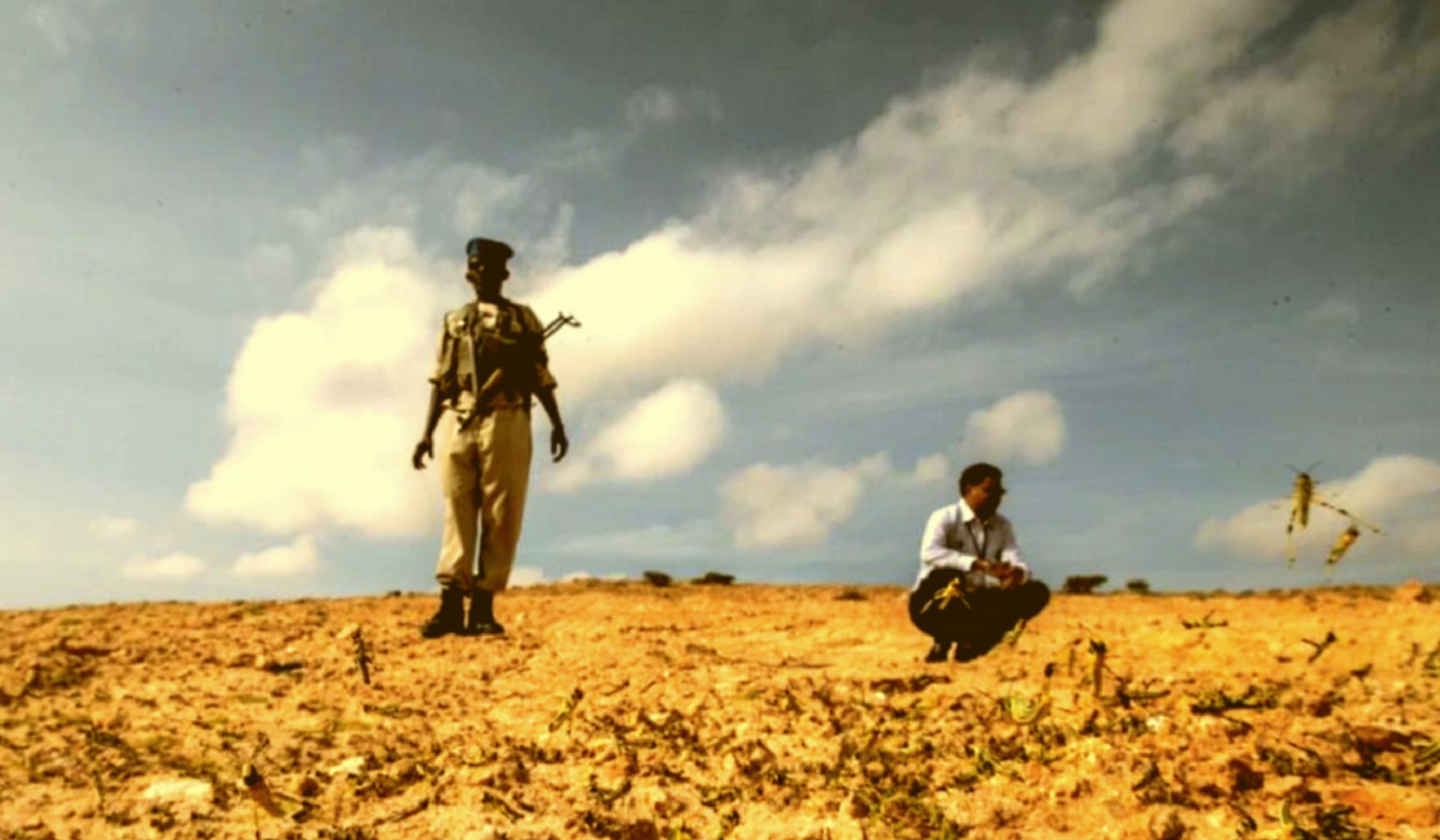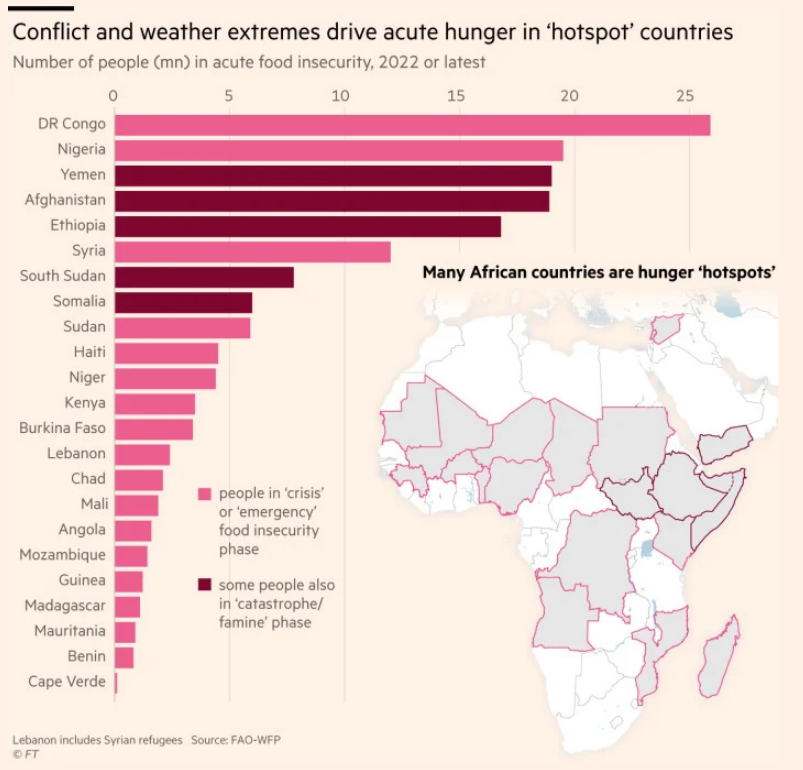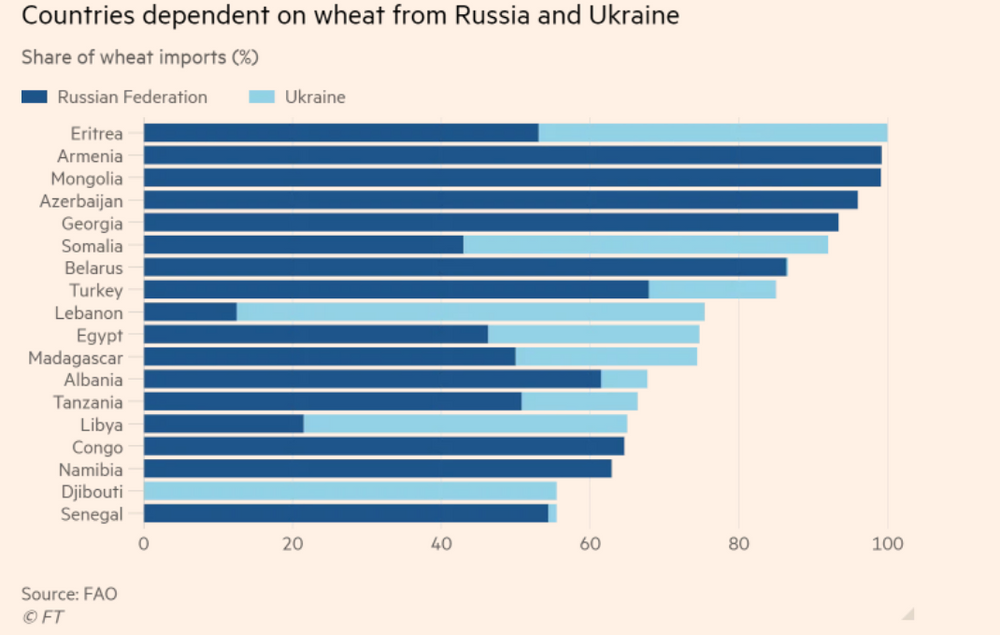Africa through an Unprecedented Time

The coronavirus pandemic had heavy repercussions on the African economy with more than 346 million people in Africa facing a food security crisis leading to millions of families skipping meals every day. Even now, many African countries are still struggling to rebound as they face rising inflation and food shortages intensified by the war in Ukraine.

The African Development Bank (AfDB) last month approved a $1.5 billion financing facility for emergency food production, to help 20 million farmers produce 38 million tonnes of food. And the World Bank too had approved a $2.3 billion program to help countries in eastern and southern Africa tackle food insecurity
With many of the affected countries are still reeling from the adverse economic effects of the COVID-19 pandemic, the continent has witnessed climatic shocks like the droughts in East Africa and cumulative poor rainfalls in West Africa, a dramatic rise in displaced people, and surging food and fuel prices have contributed to the overwhelming needs in the region.

The International Committee of the Red Cross (ICRC) has been carrying out assistance efforts with other components of the International Red Cross and Red Crescent Movement, across Africa - Somalia, Kenya, Ethiopia, South Sudan, the Democratic Republic of the Congo, Sudan, Central African Republic, Chad, Cameroon, Nigeria, Niger, Burkina Faso, Mali and Mauritania, where the food security crisis is most felt and would also ramp up operations in 10 countries in response to support an additional 2.8 million people.
The steep rise in international food and fuel prices since the Russian invasion of Ukraine has left millions more Africans facing hunger and food insecurity. The price rises have compounded economic problems caused by the coronavirus pandemic, sparking concerns of unrest in the hardest-hit countries. The World Food Programme has said that major parts of Africa are facing an unprecedented food emergency because of the war in Ukraine with more than 40 million people in the Sahel and West Africa facing acute food insecurity, up from 10.8 million people three years ago. In Kenya, the prices of edible oils have jumped more than 45% from last year in Kenya, while the price of flour has increased by 28%. In Ethiopia, food prices have risen by 42.9% in April as compared to last year. The IMF has forecasted that the consumer price rises in sub-Saharan Africa would rise by 12.2% this year making it the highest rate in almost two decades.
Ahmed Shide, Ethiopia’s finance minister told the Financial Times that the conflict in Ukraine had sparked a global price hike of fuel, fertilizers and also edible oil and sugar, and wheat, particularly which has brought these significant shocks to the system.
In a process to make Africa independent of food and medicine imports, the African Development Bank (AfDB) has approved the creation of a pharmaceutical tech foundation and has begun processing requests for food relief, which would allow Africa to leverage intellectual property rights, protected technologies and innovations to expand its pharmaceutical and vaccine manufacturing sectors. The AfDB president Akinwumi Adesina has told Reuters that Africa should not allow itself to be vulnerable in excessively depending on others, whether it is for vaccines or whether it is for food with it importing 80% to 90% of all its medicines for a population of 1.3 billion people which he thinks should not be outsourced to the benevolence of other nations.
The last week, World Trade Organization last week agreed on a partial waiver of intellectual property rights to allow developing countries to produce and export COVID-19 vaccines.
For more information, you can refer to the Financial Times article. Click Here
